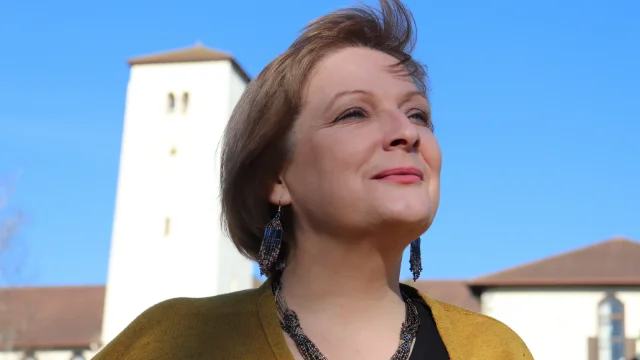
By , Director of Internationalisation, Rhodes University
South Africa’s Department of Higher Education and Training released a policy framework in 2020 to enhance the sector’s effort towards internationalisation. The Conversation’s Nontobeko Mtshali asked Orla Quinlan to share her insights.
What is internationalisation and why is it important?
It’s a process that enhances the quality of research, community engagement and teaching and learning to benefit society. Jane Knight, a pioneer in this area, defines it as:
The process of integrating international, intercultural and global dimensions into… teaching and learning, research and service to society at the institutional and system level.
It’s important for a number of reasons.
Research: Issues facing humanity aren’t restricted by country boundaries. These include climate change, political instability, racism, pandemics, a fluctuating global economy, inequality and poverty. The development of COVID-19 vaccines showed how researchers can share knowledge and develop a scientific solution to benefit humanity. But vaccine nationalism has marred the roll-out of the vaccine. This points to the serious problem of insular, nationalistic responses to global problems.
Graduates as future leaders: Leaders need to be knowledgeable about developments in their fields. They need to understand how local problems connect to their region and beyond. The global South’s development problems are often as a direct result of the international inequalities and uneven power dynamics.
Also important is graduates’ ability to engage with people from diverse language and cultural communities. Graduates need intercultural competencies to be effective in multi-cultural workplaces.
Adapting curriculum: Including comparative global perspectives in the curriculum is important. This will enable graduates to understand their own context in relation to others.
Quality of education: When done appropriately, it enhances the quality of higher education. International research is shared more widely. Comparative perspectives in teaching and learning improve the quality of classroom engagements. This also inspires new thinking, develops intercultural competencies and can enhance innovation.
Ethics: It’s an ethical imperative in an increasingly polarised world.
How are South African institutions doing?
Most of South Africa’s 26 public higher education institutions are involved in some aspects of internationalisation. The sector hosts students from about 170 countries. Between 2015 to 2018, 6% of those students came from other African countries. This is in line with the Southern African Development Community recommendation that at least 5% of the students in each country should come from other countries in the region.
Collectively, South African institutions have their own association, the International Education Association of South Africa. It hosts an annual conference and produces a publication which gives an overview of internationalisation efforts.
The association is affiliated to the global Network of International Education Associations. In 2020 the network called on governments and universities to reaffirm the importance of international higher education and research.
Is South Africa’s framework any good?
The first policy framework was released in November 2020. It gives guidance on a number of issues. These include student and staff mobility, cross-border research collaboration, quality assurance and accreditation.
The policy was drawn up by the Department of Higher Education and Training. It recognised that the country’s universities are very diverse. This meant that it didn’t adopt a prescriptive policy. The framework gives each university autonomy to develop its own policy, strategy and goals according to its unique context.
Only a few countries in the global South have internationalisation policies in higher education. South Africa is at the forefront and can play an influential role. The Department of Higher Education and Training recently shared its approach with the Indian government, which is developing its own policy, during a webinar hosted by the World Bank.
The International Education Association of South Africa, in collaboration with other partners, is commissioning research to assess universities’ readiness for implementing the framework.
Universities will be guided by the framework, commissioned research and the sector’s shared experience. These efforts will enable staff and students to interact effectively with this ever changing world.
What impact has COVID-19 had?
The pandemic forced universities to be innovative when it comes to online teaching and learning. This shift opened up new and cost effective ways for virtual, international engagements. Aspects of this online momentum are likely to continue.
But digital inequalities will remain a challenge. To ensure that a Northern domination of technological innovations isn’t cemented a Southern approach, with a global purview, is needed.
Original article: https://theconversation.com/south-africas-universities-are-adopting-an-international-lens-why-it-matters-168331
